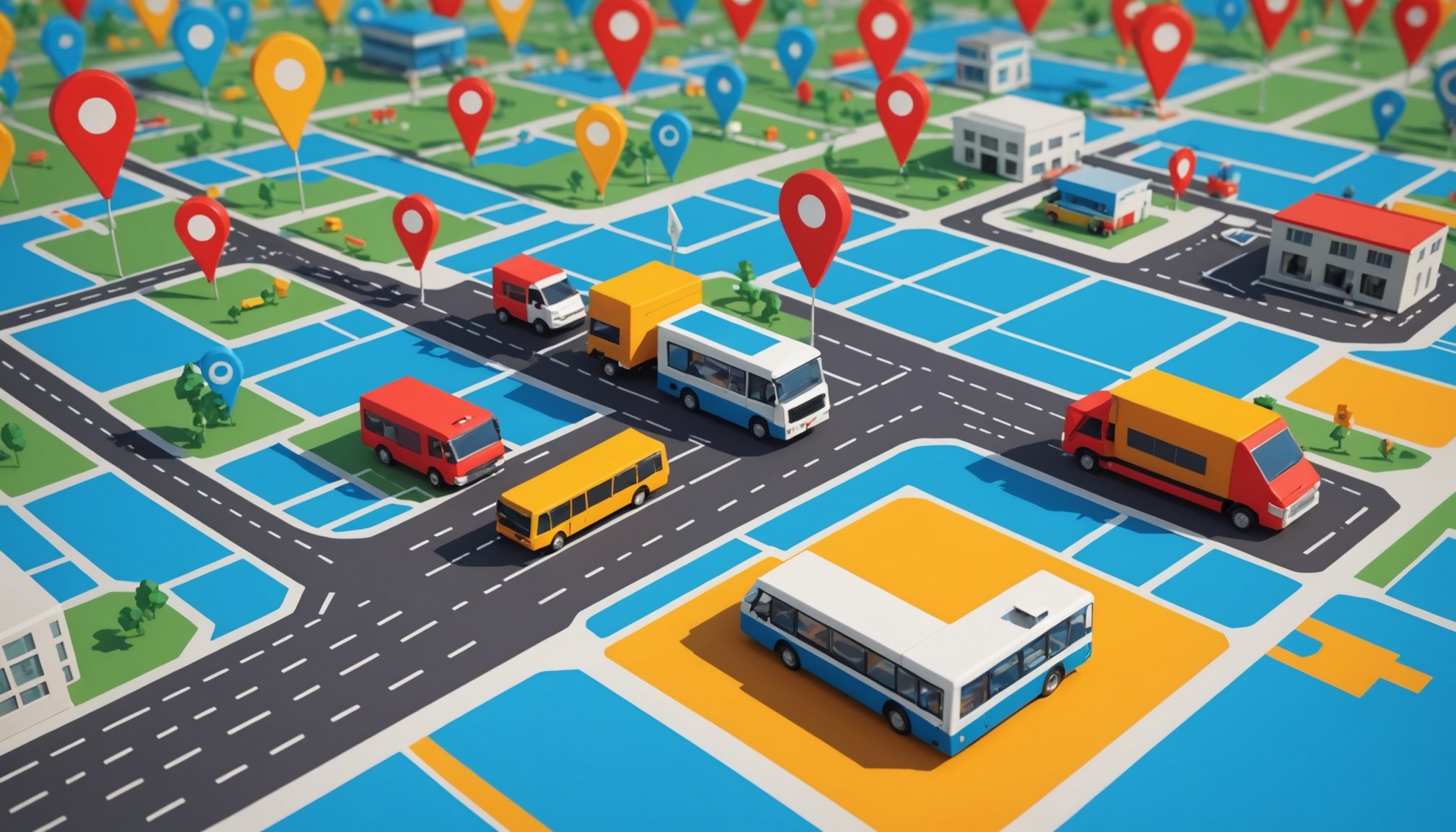Understanding Geomarketing in the UK Retail Sector
Geomarketing involves leveraging geographical data to tailor marketing efforts, and it holds significant relevance for UK retailers. By utilising location-based marketing, retailers can precisely target audiences, enhance customer engagement, and optimise inventory management.
In practice, geomarketing uses geographic information to align promotions and services with local consumer demands. Its primary advantage lies in enabling retailers to understand geographical consumer behaviours, allowing for more personalised and effective campaigns.
In the same genre : Proven tactics for uk retailers to reduce product returns effectively
Key trends in geomarketing influencing the UK retail landscape include advancements in mobile technology and the increased ubiquity of smartphones. These developments have facilitated better customer targeting and personalisation in retail strategies. Additionally, there is a growing focus on location intelligence, empowering retailers to draw actionable insights from vast datasets, thus refining marketing strategies.
By integrating data analytics with geomarketing, UK retailers can anticipate customer needs more accurately, assess market potentials, and effectively plan store locations. The implementation of these strategies has shown to increase customer satisfaction and loyalty, demonstrating geomarketing as a powerful tool for competitive advantage in today’s dynamic retail environment.
Have you seen this : Key considerations for uk restaurants adopting digital payment solutions
Core Strategies for Effective Geomarketing
Understanding and implementing core geomarketing strategies is crucial for UK retailers aiming to enhance customer engagement and optimise their reach. These strategies allow businesses to leverage location intelligence effectively.
Utilizing Location Data for Targeting Customers
Accurate location data is the cornerstone of effective geomarketing strategies. By analysing geographical data, retailers can extract actionable insights, giving them a deeper understanding of consumer behaviour. Techniques such as geographical heat mapping and data segmentation allow businesses to tailor their offerings specifically to local customer preferences. For example, a retailer might identify high demand for specific products in certain areas and adjust inventory accordingly. This approach not only enhances customer satisfaction but also drives sales.
Integrating Geomarketing with Digital Advertising
The synergy between geomarketing strategies and digital platforms is essential for seamless location-based advertising. By integrating geomarketing with digital advertising tools like Google Ads and Facebook Location Ads, UK retailers can deliver targeted ads to consumers based on their specific locations. This integration ensures that marketing messages reach audiences effectively, improving conversion rates. Case studies of UK retailers demonstrate how this approach has successfully elevated brand visibility and customer engagement in targeted regions.
Leveraging Social Media for Enhanced Engagement
In the increasingly digital landscape, social media has become a cornerstone for location-based marketing. Through strategic use of social platforms, UK retailers can boost their geomarketing strategies by fostering stronger connections with local audiences. Social media channels enable retailers to craft geographically relevant content and engage with consumers directly in their communities.
Retailers can utilise platforms like Instagram and Facebook to share promotions and events targeted to specific areas, aligning content with local occasions and trends. This approach not only enhances customer engagement but also provides valuable data insights into consumer preferences and behaviours within different locales.
Successful examples of UK retailers leveraging social media include running location-specific campaigns that offer instant offers or discounts to users sharing their local check-ins. Additionally, hashtags tied to geographic themes amplify reach, fostering a sense of community among consumers.
To maximise the benefits of geomarketing through social media, businesses should maintain active interactions by responding to customer feedback and inquiries swiftly. This real-time engagement strengthens brand loyalty and conveys a caring brand persona. Embracing these strategies allows retailers to seamlessly integrate into the daily lives of consumers, marking social media as an indispensable facet in the geomarketing toolkit.
Tools and Technologies for Geomarketing
Exploring the landscape of geomarketing tools is crucial for UK retailers aiming to enhance their location-based strategies. Various technology solutions empower retailers by providing essential capabilities like mapping, analytics, and customer insights.
Geographical Information Systems (GIS) are at the forefront, offering detailed mapping and spatial analysis. These tools help retailers visualise and understand geographic trends, aiding in decision-making processes such as site selection and market potential analysis.
Furthermore, companies are increasingly investing in advanced analytics software that interprets location data to generate actionable business insights. These solutions boost the efficiency of geomarketing strategies, allowing precise customer targeting and personalisation.
Emerging technologies are reshaping geomarketing efforts. Augmented reality (AR) and virtual reality (VR) offer immersive ways to engage customers, while the Internet of Things (IoT) provides real-time data for enhanced operational decisions.
Retailers leveraging these technological solutions can anticipate market shifts and refine their marketing efforts effectively. A focus on continuous adaptation to new tools ensures UK retailers maintain a competitive edge in the dynamic retail sector. By embracing these technologies, businesses can drive innovation, optimise operations, and enrich the customer experience.
Measuring Success in Geomarketing Campaigns
In the realm of geomarketing, assessing the success of campaigns is pivotal for UK retailers. A thorough understanding of relevant metrics can transform raw data into meaningful insights, guiding strategic decisions.
Key Performance Indicators to Track
Identifying the right Key Performance Indicators (KPIs) is crucial for evaluating the efficacy of geomarketing. Metrics such as location-based engagement, conversion rates, and customer footfall offer valuable insights into campaign performance. Analytical tools are invaluable in this process, providing retailers with the means to monitor these metrics and adapt strategies accordingly. Moreover, retailers should aim to contextualise KPI data, linking it to location intelligence and customer behaviour patterns to optimise marketing efforts further.
Case Studies of Successful Campaign Measurement
Several UK retailers showcase exemplary practices in measuring geomarketing success. These case studies underline the significance of accurate metrics and data analysis. By leveraging detailed analytics, companies can refine their approach, driving improved ROI. Lessons learnt from these examples emphasise the importance of maintaining flexibility in measurement methodologies, ensuring they align with dynamic market conditions.
Challenges and Solutions in Measuring ROI
Retailers often encounter challenges in effectively measuring the ROI of geomarketing initiatives. Common obstacles include data integration issues and fluctuating market demands. Innovative solutions, such as advanced analytics software, help overcome these hurdles, facilitating accurate performance assessment. Adaptation based on insights ensures the continual enhancement of geomarketing strategies.











